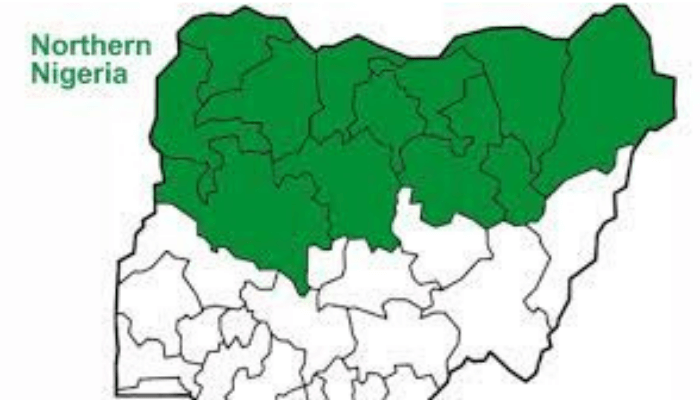Northern Nigeria is shifting its focus from decades of underinvestment and systemic challenges to unlocking its vast untapped resources in mining, agriculture, and power. This transformation gained momentum at the Northern Nigeria Investment & Industrialisation Summit (NNIIS) held in September 2025, marking the beginning of a concerted effort to reshape the region’s economic future.
Ango Abdullahi, CON, convener of the Northern Elders Forum (NEF), emphasised that the summit was “a pivotal moment in Northern Nigeria’s history, one where we transition from being a region defined by deficits to one filled with untapped opportunities.”
With billions in pledges from international investors and strong commitments from government leaders for comprehensive reforms, the summit became the catalyst for a new phase of economic revitalisation in the North. At the heart of this transformation lies a commitment to unlock the region’s mineral wealth, vast agricultural potential, and abundant renewable energy resources under the overarching framework of the Northern Nigeria Economic Development Masterplan (NNEDM).
Wale Edun, the Minister of Finance, representing President Bola Ahmed Tinubu, noted, “The commitment from international investors to Northern Nigeria is not just about capital inflows. It’s about a shared belief that the North holds the key to Nigeria’s economic resurgence.”
As delegations from Turkey, India, South Africa, and Saudi Arabia expressed readiness to invest heavily, the summit highlighted Northern Nigeria as an emerging high-yield investment destination even as it acknowledged the hurdles of insecurity, infrastructure deficits, and poor governance that continue to stymie progress.
Yet, despite these challenges, the summit’s findings underscore a clear path forward: leveraging Public-Private Partnerships (PPP), digital innovation, and renewable energy solutions, alongside enhancing regional cooperation to achieve inclusive industrialisation.
The creation of the Northern Nigeria Economic Development Council (NNEDC) will serve as the anchor for this ambitious plan, while the capital mobilisation programme seeks to attract both domestic and international investors, providing the financial momentum needed to kick-start critical projects.
Read also: Northern Nigeria’s next frontier: How the MAP agenda can transform prosperity
A rebirth in mining, agriculture, and power
The NNIIS presented an actionable vision for transforming the North’s most promising sectors, mining, agriculture, and power, recognised as key enablers of industrialisation, job creation, and diversification.
Yemi Kale, Group Chief Economist at Afreximbank, highlighted this potential, stating, “Northern Nigeria’s agricultural lands, mineral deposits, and renewable energy resources are the cornerstones of its industrial future. We must ensure that these resources are tapped responsibly and sustainably.”
Habiba Suleiman, Head of Strategic Partnerships at TGI Group, added, “The possibilities for agro-processing, livestock, and fisheries are immense. By focusing on value-added agriculture, we can move from farm to factory to fortune.”
However, the region’s rich endowments have long been overshadowed by insecurity, poor infrastructure, and inconsistent policy environments. Participants agreed that only an integrated approach could unlock its potential — one that connects industrial zones, expands renewable energy access, and improves logistics to power agro-industrial growth.
By positioning Northern Nigeria as a regional leader in industrialisation, the masterplan aims to attract multinational investments, particularly in the sectors of energy, agriculture, and mining.
Security, infrastructure, and governance
While the summit’s tone was optimistic, the hurdles remain formidable. Insecurity, banditry, and land disputes continue to discourage investors, particularly in rural areas where mining and agriculture could thrive.
Aminu M. Nyako, MD/CEO of Sebore Farms, warned that “we cannot unlock the potential of agriculture without tackling the twin challenges of security and poor infrastructure.”
Access to finance also poses a challenge, with small and medium-sized enterprises (SMEs) struggling to obtain funding amid high borrowing costs. Infrastructure gaps — from roads to energy grids — continue to restrain productivity. Additionally, bureaucratic inefficiencies and weak governance deter investors seeking predictable environments.
To overcome these challenges, stakeholders called for clear investment rules, streamlined land administration systems, and stronger policy coordination between federal and state governments. The NNEDC will play a pivotal role in ensuring that each initiative is executed with transparency, accountability, and measurable results.
A path forward built on collaboration and innovation
The Northern Nigeria Investment & Industrialisation Summit (NNIIS) laid the foundation for what could become a historic turning point in the region’s economic development. By identifying opportunities in mining, agriculture, and power and pairing them with PPP frameworks, capital mobilisation, and digital innovation, the summit charted a realistic path toward industrialisation.
However, as discussed during the summit, insecurity and climate risks remain pressing threats that could stall progress if left unaddressed.
Ultimately, Northern Nigeria’s economic renaissance will depend on collaboration, sound governance, and sustained political will. As the world turns its attention to the region, the next few years will determine whether this renewed commitment can overcome decades of stagnation and transform Northern Nigeria into an economic powerhouse driven by its own people, resources, and resilience.
Oluwatobi Ojabello, senior economic analyst at BusinessDay.

